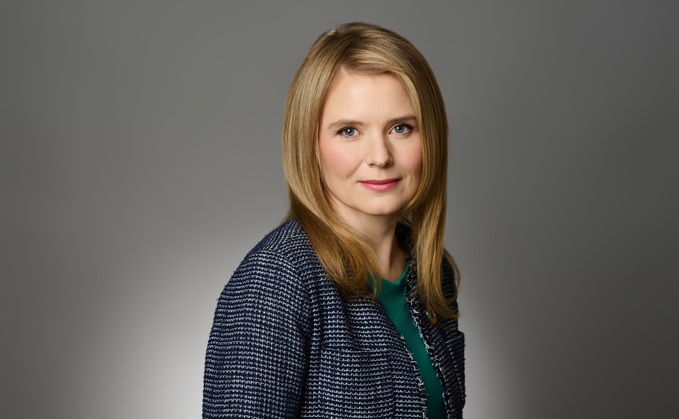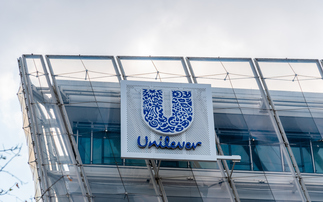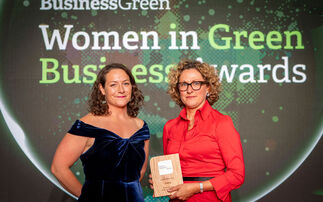
Credit: AVEVA
Partner Insight: To drive systemic change, sustainability needs to shift from a goal to a decision-making capability, writes AVEVA's chief sustainability officer Lisa Wee
The decade after the 2015 Paris Agreement brought unprecedented momentum within the business community: net zero pledges, a surge in green tech investment, and the rise of ESG (environmental, social and governance) funds. Even amid shifting global politics in the ten years, corporate commitments remained steadfast.
2025 has ushered in a different dynamic. Some companies have withdrawn their ESG goals, while others turned to 'greenhushing' to avoid potential stakeholder pushback. Targets slipped, commitments softened, and 'sustainability fatigue' entered boardroom vocabulary. The prevailing narrative shifted from corporate urgency to retreat.
While some view these cases as a bellwether for corporate sustainability, the reality is more nuanced. Sustainability isn't stalling, it's maturing. That maturity is now demanding systemic change.
What systemic change looks like in practice
Over the last decade, companies have laid important groundwork to reduce their climate impact. The next chapter requires deeper integration of sustainability into core business planning. This means working across the value chain, with suppliers and customers alike to mitigate shared impacts.
This next evolution is complex and lacks a clear roadmap, but it is essential. That is what systemic change looks like: when sustainability shifts from a goal to a decision-making capability.
Systemic change often fails when it's treated as a reporting layer. It works when it becomes part of the operating model. Not as a side initiative, but as a core capability. When done right, sustainability and financial performance reinforce each other. It's not a trade-off, rather, a multiplier.
From insight to impact
For many companies, this shift starts with coordination. That means connecting operations, energy use, maintenance, and suppliers into a live, integrated decision system. When those elements move together, trade-offs become visible, and progress becomes repeatable.
One example: to realise its 2050 net zero ambitions, leading mobility and tyre manufacturer Michelin knew it needed more energy-efficient operations. The team pulled data from across the plant into a digital twin, enabling them to monitor energy use holistically and optimise processes in real time.
The result was a 10 per cent reduction in energy use within the first six months and 16 per cent across the year. The digital twin approach also allowed the team to quickly and easily to share information across Michelin's global plant network, resulting in further energy savings at scale.
Further efficiencies enabled the development of new lower-carbon tyres, reflecting optimisations made throughout the company's manufacturing value chain. These tyres are now sold at a premium in the European market.
Same plant. Same constraints. More informed decision-making. These results show that integrating sustainability into core strategy isn't just the right thing to do, it's smart business.
The coordination advantage
Too often, coordination is treated as a mid-level task, something handled by project teams, not senior leadership. But in practice, coordination is the capability that determines whether ambition turns into execution.
The old approach - one process, one KPI, one outcome - delivers local wins and global misses. But when energy, operations, maintenance and supply chain teams work from a shared plan, supported by the same data and aligned incentives, outcomes compound. Progress becomes repeatable. Execution becomes scalable.
At AVEVA, we've seen how technologies like digital twins, AI-driven optimisation and real-time analytics help clients simulate trade-offs and make faster decisions. But these tools deliver only when they are wired into an organisation designed for coordination. Embedding sustainability into core operations isn't about bolting on tech. It's about rewiring how the system runs.
This is the real insight: coordination is not a communications task, it's a leadership capability. Leaders who can connect these capabilities at scale are now more critical than ever. The next wave of sustainability progress will be led by those who can turn coordination into competitive advantage.
A coordination test for every business leader
Here's the test I'd pose to any business leader: if you needed to improve sustainability performance, say, cutting emissions by 15 per cent next quarter, who actually makes the decisions that drive energy usage?
If the answer spans five departments, three data silos, and two external partners, the challenge isn't just emissions, it's coordination. Collaboration. A radical new way of thinking that doesn't just build on the sustainability narrative of the past, but evolves it.
Progress will depend on our ability to drive innovation through radical collaboration, and to embed sustainability into every business decision we make.
Lisa Wee is chief sustainability officer at AVEVA.
AVEVA sponsored the Clean Technology Innovator of the Year category at the Women in Green Business Awards 2025.







